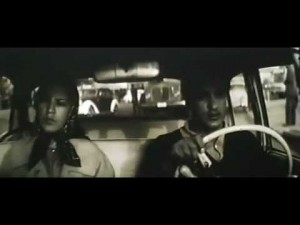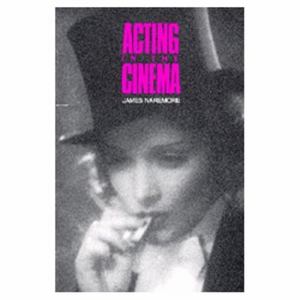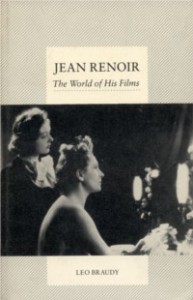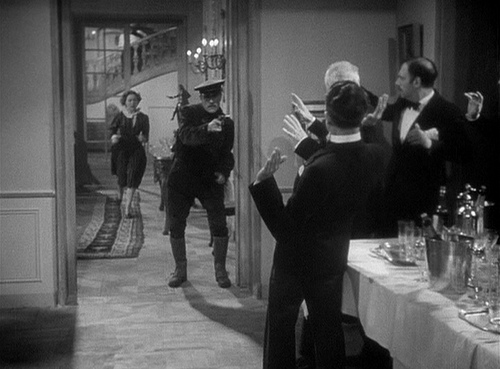Written for a booklet distributed at the 2018 Venice International Film Festival. — J.R.

Most people reading these words have likely heard about the Iranian New Wave, which conjures up such names as Kiarostami, Makhmalbaf, and Panahi. But until recently, Westerners who have heard about the first Iranian New Wave, whose names include Farrokhzad, Golestan, Kimiavi, and Saless, have been few and far between. Apart from the belated availability in the West of Forough Farrokhzad’s 1962 short film The House is Black, this watershed prerevolution movement in Iranian cinema has almost been lost to history due to the abrupt European exiles of many of its other major artists — Ebrahim Golestan to England, Parviz Kimiavi to France, and Sohrab Shahid Saless to Germany. (Bahram Beizai, Dariush Mehrjui, and Amir Naderi are among the few filmmakers who might be stylistically associated with both waves, but given how seldom their own prerevolution films are seen nowadays, apart from Mehrjui’s The Cow, it’s difficult to say much about them.) Arguably even more innovative as well as more modernist than the second New Wave, and virtually contemporaneous with the French New Wave, Farrokhzad’s The House is Black (1962), Golestan’s Brick and Mirror (1963-64), Kimiavi’s The Mongols (1973), and Saless’ A Simple Event (1974) are masterworks that continue to speak to the present like few other films. Read more
Written for the Savannah-based, online Cine-Files in May 2014, posted circa early June, and reprinted here, with their permission (and some added illustrations). — J.R.

JONATHAN ROSENBAUM: For me, a key part of your argument in Acting in the Cinema (Berkeley: University of California Press, 1988) occurs in your fourth chapter, “Expressive Coherence and Performance within Performance,” when you argue that even a sincere expression of one’s feelings is an actorly performance, “because the expression of ‘true’ feeling is itself a socially conditioned behavior.” Which then leads you to quote from Brecht:
“One easily forgets that human education proceeds along theatrical lines. In a quite theatrical manner a child is taught how to behave; logical arguments only come later. When such-and-such occurs, it is told (or sees), one must laugh….In the same way it joins in shedding tears, not only weeping because the grow-ups do so but also feeling genuine sorrow. This can be seen at funerals, whose meaning escapes children entirely. These are theatrical events which form the character. The human being copies gesture, miming, tones of voice. And weeping arises from sorrow, but sorrow also arises from weeping.” (69)
It seems to me that one reason why acting tends to be neglected in film criticism is that we can too easily confuse it with other elements — writing, directing, the ‘auras” of certain personalities, even certain casting decisions — in much the same way that we’re often confused or misguided about the sources of our own behavior (such as, are we weeping to express sorrow or to produce sorrow?) Read more
From Film Comment (January-February 1973). — J.R.

JEAN RENOIR: THE WORLD OF HIS FILMS by Leo Braudy. Doubleday & Co., New York, 1972; hardcover $8.95; 286 pages; illustrations, index.

I’ve often wondered why a disproportionate amount of bad film criticism comes from English teachers. One would suppose that anyone devoted to narrative, lyric and dramatic structures would have some sensitivity for and interest in movies, but look at the recent issues of literary magazines like Modern Occasions, Partisan Review and The New York Review of Books and see what they usually have to offer in their “movie chronicles”: bilious, solipsistic professors who waste their time at EASY RIDER and THE GRADUATE (or DEATH IN VENICE and THE GO-BETWEEN) and then conclude that film is a “low art” or an overrated medium because these works don’t live up to the claims of their publicists. Even a critic like Stanley Kauffmann — who should know better — will complain (in a recent Film Comment) that “a list of memorable foreign films” for 1970 would only run to three or four titles, implicitly making the assumption that he’s seen all the likely candidates: a standard literary procedure, at least in America.
Fortunately, Leo Braudy, an English teacher, shares none of the false snobbery and little of the myopia about film that tends to plague his profession. Read more




